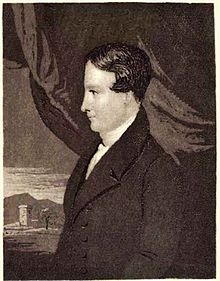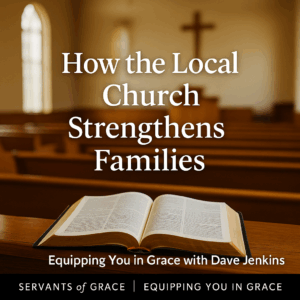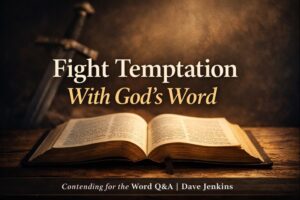⏱️ Estimated Reading Time: 6 min read
It was on March 20th, 1832, after reading part of the life of Jonathan Edwards, that Robert Murray M’Cheyne penned the following words:
“How feeble my spark of Christianity appears beside such a sun! But even his was a borrowed light, and the same source is still open to enlighten me.”[1]
Down through the centuries, God has been pleased to raise up men that shined like the sun. But these men were not extraordinary men, but rather ordinary men who walked closely with their majestic and glorious God. If we are to be useful to the Lord in our generation, M’Cheyne will teach us that God is after our holiness (1 Pet. 1:13-16). A holy life is a useful life in the Kingdom of God. To show you this, this article will be split into two parts. First, we will consider a brief sketch of M’Cheyne’s life. Second, we will gain a glimpse into M’Cheyne’s usefulness in life.
A Brief Sketch
To begin, on May 21st, 1813, in Edinburgh, Scotland, the Lord in mercy gifted Scotland with the arrival of Robert Murray M’Cheyne into the world. Though M’Cheyne grew up in a godly home, his unconverted days were marked as ‘days of ungodliness’ – where he “cherished a pure morality, but lived in heart a Pharisee.”[2] It wasn’t until the death of his oldest brother, David, that God began to open his eyes to see his sin and the need of the Saviour. Later, on July 1st, 1835, Robert Murray M’Cheyne was licensed to preach the everlasting Gospel by the Presbytery of Annan and was soon called to begin his pastoral ministry at St. Peters, Dundee on November 1st, 1836.[3]
A Useful Life
Next, it must be understood that the usefulness of M’Cheyne’s life and ministry was not due to his brilliant intellect or exegetical skills. Rather, as John Shearer described it, “M’Cheyne was himself his greatest sermon, and here is the secret of his success. He walked with God in the beauty of holiness.”[4] When people heard M’Cheyne preach, they “found themselves with an unforgettable impression that God had drawn near to them.”[5] Let’s consider briefly two lasting impressions from M’Cheyne’s life.
First, the power behind M’Cheyne’s ministry was found in his close walk with Christ. M’Cheyne would often say that “a calm hour with God is worth a whole lifetime with man.”[6]
Andrew Bonar notes that M’Cheyne “felt meditation and prayer to be the very sinews of his work.”[7] In his biographical sketch of M’Cheyne’s life, Bonar continues:
Though intent on accomplishing his work, he kept by his rule, ‘that he must first see the face of God before he could undertake any duty.’ Often would he wander in the morning among the pleasant woods of Dunsinnan, till he had drunk in refreshment to his soul by meditation on the Word of God; and then he took up the pen.[8]
Often, M’Cheyne would write in his diary, “Rose early to seek God, and found him whom my soul loveth. Who would not rise early to meet such a company?”[9] Therefore, as Bonar puts it, “the real secret of his soul’s prosperity lay in the daily enlargement of his heart in fellowship with his God. And the river deepened as it flowed on to eternity.”[10]
Second, M’Cheyne understood that the greatest privilege in the Christian life is not one’s giftedness, but the open access that we have to the Father, through Christ, and by the Spirit. We have the wonderful privilege of fellowship with God. Concerning this, M’Cheyne wrote the following in his diary,
An hour should never pass without our looking up to God for forgiveness and peace. This is the noblest science, to know how to live in hourly communion with God in Christ. May you and I know more of this, and thank God that we are not among the wise and prudent from whom these things are hid![11]
Again, M’Cheyne would write, “Above all, keep much in the presence of God. Never see the face of man till you have seen his face who is our life, our all.”[12] Have you lost the importance of fellowshipping with God in your Christian ministry? Are you so focused on public output that you have missed first prioritizing private input? M’Cheyne teaches us that if we are to have effective output in this world, we must first be concerned with our input, namely, our spiritual disciplines.
Our whole usefulness in public ministry flows out of the vibrancy of our private walk with Christ. Speaking to pastors, M’Cheyne writes: “study universal holiness of life. Your whole usefulness depends on this, for your sermons last but an hour or two, your life preaches all the week.”[13] Again, M’Cheyne would often say, “the greatest need of my people is my own holiness.”[14] Therefore, it is clear that through M’Cheyne’s personal pursuit of God and holiness, God was pleased to make him a chosen vessel, useful for the kingdom of God.
Concluding Thoughts
To conclude, what is the pulse-beat of your life? What lasting impressing will your life leave in this world? A life that is holy devoted to Christ in personal fellowship is a life that will be greatly used of Christ in the public. Concerning this, the apostle Paul writes in 2 Timothy 2:21: “Therefore, if anyone cleanses himself from what is dishonorable, he will be a vessel for honorable use, set apart as holy, useful to the master of the house, ready for every good work.”
BIBLIOGRAPHY
[1] David P., Beaty. An All-Surpassing Fellowship (Grand Rapids: Reformation Heritage, 2014), 12.
[2] Andrew, Bonar. Robert Murray M’Cheyne. 2012. Reprint (Carlisle: Banner of Truth, 2014), 3.
[3] Peter, Jeffery. Preachers Who Made a Difference (New York: Evangelical Press, 2004), 65.
[4] David P., Beaty. An All-Surpassing Fellowship, 27-28.
[7] Andrew, Bonar. Memoir and Remains of Robert Murray M’Cheyne. 1966. Reprint (Edinburgh: Banner of Truth, 1973), 55.
Joshua J. Mills is married to his beloved Kyla and they have two children: Isaac and Lydia. Outside of the home, Joshua has the privilege of serving as pastor at Trinity Baptist Church (Burlington, Ontario) and as a guest lecturer through Carey International University of Theology.




